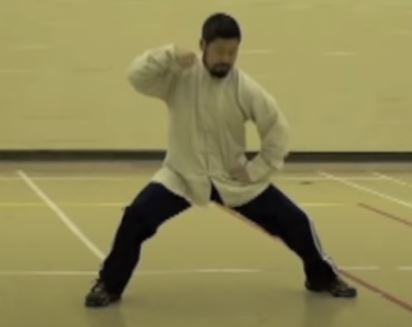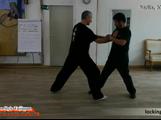Knowledge : Taiji FAQ
Do you know the visa situation in China? I am going to stay in China for 3 months and possibly a year, but I’ve heard China stopped issuing 60 and 90 day visas. Do you know how difficult it is to get a 6 month visa? I am going to get mine in Hong Kong, hoping it might be easiest to get a visa there. Read more
Will I have any problems staying on Daqingshan as a vegetarian? Read more
Most definitely! Daqingshan Mountain Resort can accommodate your friends while you are at your studies. We can also look after them with tours and other activities. They can are able to dine with your Taiji group or have a private dining facility.
Originally written by: Matej Velicky There are many stories about Chen Fake and Hong Junsheng and their fighting ability.
Master Chen,
Greetings. I’m not sure if you’re interested in these things, but just in case, here are my experiences with Qigong since March 2008. Zhan Zhuang Experiences (wuji posture only) Read more
When your opponent is tight, you rotate to get out; when he is loose, you hit directly. The video clip was made at a workshop at the De Glind in Holland in April 2008. Master Chen Zhonghua was assisted by Pavel Codl.
What are the Three Pans of Taiji?
- Upper Pan: Shoulders and Head section.
- Shoulders down and Kua above.
- Below the Kua.
This photo graph is designed to deal with knee problems in training.
In order to avoid injuries, the most important thing to avoid is the knee pushing outward away from the body, as illustrated in the picture above: the yellow dot cannot move towards the blue line. The blue line is an imagined wall that the knee cannot push against.
- Question: What about the principle of the knee going up and down?
The knee must act like a ball, it aims up and down but it does not physically move up and down at all. The aiming of the knee, one up and the other down, is called “intent” for the knee. - Question: What about the concept of the knee not exceeding the foot?
In general, that principle is a correct one. But as a matter of principle, it is more important to ensure that the kua pushes down towards the knee and the knee pushes towards the foot (floor). This principle ensures that the knee does not have a horizontal orientation, thus does not move sideways outside of the foot.
The following youtube clip shows the actions of the rear knee.
Are you learning anything? I often mention at my workshops that I notice many old disciples of the Grandmaster who spent dozens of years with the Grandmaster without learning a thing.
Why do I say something so harsh? Look at the physical evidence. They continue to look like they are doing wushu, or whatever they used to do. They continue to use force in their push hands. They continue to use tricks in their applications. Their abilities are all external.
Are you one of the above?
One observation that I have consistently made is that most people follow the rules for about 4 months. They gain considerable ability and understanding during these four months. After that they mentally graduate. They won’t “hear” anything any more. The first four months were filled with real learning because they were totally new to the system. After the first four months, they continue to believe that they are learning but in reality, they don’t learn any more. If you tell them, they will have 1 million explanations. They confuse what they do with what learning is. They experiment and are on their own while in their mind they are trying out what they learned.
In real life, a person gets into this frame of mind at the age of about 11 to 13. That’s when you notice that they start believing in themselves. In learning Taiji, this is reduced to about 4 months. Once a person gets into that frame of mind, there is almost no return.
Another scenario is almost the opposite but has the same bad effect. People come to the system but will not learn. There could be a myriad of reasons but they are not learning. If these people can persist, one day they will learn. When that happens, their learning will be in leaps and bounds. That is because by this time, they will have a very good foundation for learning. Their understanding will be based on facts they know.
You need to re-examine your learning process.
- 1. Choreography.
- 2. Coordination.
- 3. Clarity and Energy.
- 4. Application.
- 5. Flow.
Notice that most people follow this:
- 1. Choreography.
- 2. Flow.
- 3. Clarity and Energy.
- 4. Coordination.
- 5. Application.
Slight change in order but big difference in the end.
“When you follow the rules to the extreme, every unintentional action becomes part of the form!”
—Hong Junsheng Read more
Dear Master Chen
(please forward to master Chen)
My name is David Fadjar, and I appreciate very much your effort to translate GM Hong’s book. I have a question about Bow stance as described by GM Hong’s book (page 10) Read more
What would be the benefit of training both Chen and Hunyuan, instead of focusing on one or the other? 4
I teach the two systems for two reasons:
- Personal bias. You can also call this respect for my two masters. I am a disciple of both systems and therefore, I find in my heart that I must teach both systems. This does not mean that I always teach both Chen Style Taijiquan Practical Method and Hunyuan Taiji at the same time. Read more
I cannot tell you THE most important thing to pack. Here is a list from past graduates (no particular order):
- chocolate
- lots of socks
- really good hiking shoes
Sorry we have not included any information on this subject. It will be very easy to live as a vegetarian on the mountain. We are growning our own vegetables this year. If you decide to go, let us know as soon as you can, we will start planting things that will suit you. Lots of soya bean products. We make our own tofu on the mountain too!
I have had 1.5 years of training in Xingyi but no taiji training. Can I join the full time course? i
Definitely you can. First of all previous experience is not important for learning our style of Taijiquan. Secondly, what you have learned before is not essential either. Thirdly, how strong you are is not a factor. Read more
This is a very difficult question and yet it is a realistic question. If you want to commit three months of your life to do something so seriously, you want to know how much you can get in return. Fair enough. Let’s look at it in two different ways:



